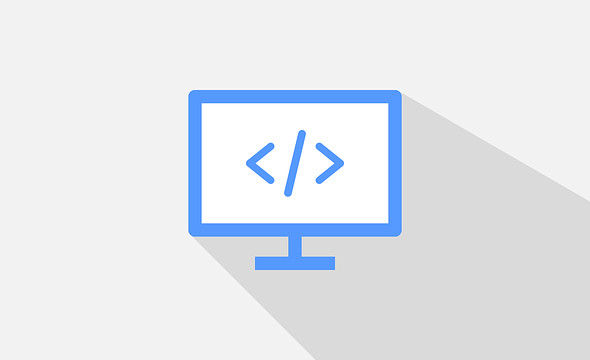DATA SCIENCE
- By visionaryclass@gmail.com
- Programming
Course Description
Data science is an essential field that statistics, programming, and domain knowledge to and analyze data. In today’s data-driven world, industries rely heavily on insights derived from data to make informed decisions, enhance efficiency, and serve customers better. This course is designed for both students and professionals who want to build a solid foundation in data science and understand its significance in various sectors.
By the end of this course, participants will have a well-rounded understanding of data science principles, tools, and techniques.
What you’ll learn
- The fundamentals of data science and its importance in today’s world.
- Key data analysis techniques using real-world datasets.
- How to work with programming languages and tools commonly used in data science.
- The process of building machine learning models and evaluating their performance.
- Essential data visualization skills to communicate findings effectively.
Module 1: Introduction to Data Science
- What is Data Science?
- Applications of Data Science in various industries.
- Data Science workflow and lifecycle.
- Tools & Technologies: Overview of Python, R, SQL
- Introduction to Jupyter Notebooks and Anaconda.
Module 2: Mathematics and Statistics for Data Science
- Introduction to Probability Theory
- Probability (Distributions: Normal, Binomial, Poisson)
- Descriptive Statistics.
- Distributions: Normal Distribution, Binomial Distribution, Poisson Distribution
- Confidence Intervals
- Regression Analysis
- Correlation and Causation
- Linear Algebra (Matrices, Vectors, Eigenvalues)
- Calculus (Derivatives, Gradients for Optimization)
- Hypothesis Testing (t-tests, Chi-square tests)
Module 3: Programming for Data Science (Python)
- Python Basics: Variables, Data Types, Operators, Conditional Statements, Loops
- Functions, Modules, and Packages
- Object oriented programming
- Modules and packages
- Exception & file handling
- Pep8
- API & Project
- Working with Pandas and NumPy for data manipulation
- File Handling: Reading/Writing CSV, Excel, and JSON files
- Introduction to Python libraries like Matplotlib and Seaborn for Data Visualization
Module 4: R Programming
- Fundamentals of R
- Vectors
- Matrices and arrays
- Lists
- Factors
- Data frames
- Programming structures
- Working with strings
- Plotting in base R
- Apply family
- Professional Projects
Module 5: Data Collection and Preprocessing
Data Collection Techniques:
- Importing data from APIs.
- Scraping data using BeautifulSoup and Selenium.
Handling Different Data Formats:
- Working with CSV, Excel, JSON, and XML files.
Data Cleaning Methods:
- Handling missing data (Mean/Median Imputation)
- Removing duplicates, fixing data types.
- Handling outliers (IQR, Z-Score).
Data Transformation:
- Scaling and Normalization (MinMaxScaler, StandardScaler)
- Encoding categorical data.
Module 6: Exploratory Data Analysis (EDA)
- Descriptive Statistics (Mean, Median, Mode, Variance).
- Data Visualization Techniques (Histograms, Box Plots, Scatter Plots).
- Correlation Analysis.
- Data Summarization.
Module 7: Machine Learning Basics
- Introduction to Machine Learning: Supervised vs. Unsupervised Learning.
- Supervised Learning Models: Linear Regression, Logistic Regression.
- Decision Trees, K-Nearest Neighbours.
- Model Evaluation Metrics: MSE, R², Confusion Matrix
- Unsupervised Learning Models:
- K-Means Clustering.
- Hierarchical Clustering
Module 8: Advanced Machine Learning Techniques
- Ensemble Models: Random Forest, Gradient Boosting (XGBoost)
- Support Vector Machines (SVM)
- Dimensionality Reduction Techniques:Principal Component Analysis (PCA), LDA
- Introduction to Neural Networks
- Model Tuning: Hyperparameter Tuning with GridSearchCV
Module 9: Deep Learning And Neural Networks
- Machine Learning workflow.
- Artificial Neural Networks.
- The Activation Function.
- Building an ANN.
- Convolutional Neural Networks.
- Pooling and Flattening.
- Recurrent Neural Networks.
- RNN Intuition.
- The Vanishing Gradient Problem.
- Inferential Statistics.
- Data visualization with Matplotlib.
- Encoding categorical variables.
- Logistic Regression.
- Building an Autoencoder.
- Data reprocessing.
Module 10: Generative AI
- Large Language Models (LLMs).
- LLM’s Industry use cases.
- Prompting Techniques.One Shot and FewS hot Prompting.
- OpenAI – GPT 3.5 / GPT 4.
- LangChain.
- Hugging Face.
- Google PaLM
- Google Gemini / Gemini Pro / Gemini Pro Vision.
Module 11: Natural Language Processing(NLP)
- Introduction.
- Language analysis.
- Natural Language Understanding.
- Tokenization & stemming.
- POS and NER.
- Scikit-Learn Primer.
- Text Feature Extraction.
- Text Classification.
- Semantics and Sentiment Analysis.
- Topic Modeling
- Keras overview.
- Dialogue Systems.
- Speech Recognition and Text-to-Speech.
- Create ChatBots.
Module 12: SQL for Data Science
- Introduction to MySQL
- Inserting data
- Crud commands
- String functions
- Basic database terminology
- Mysql constraints
- Aggregate functions
- MySQL stored procedure – I
- MySQL stored procedure – II
- Python with SQL:
- ntegrating SQLite and MySQL with Python
- Using SQLAlchemy
Module 13: Big Data Technologies
- Overview of Big Data and Hadoop Ecosystem
- Apache Spark for distributed computing
- Introduction to cloud platforms (AWS, Azure, Google Cloud)
- Working with NoSQL databases (MongoDB, Cassandra)
- Data lakes and data warehouses
Module 14: Data Visualization and Reporting
- Data Dashboards with Tableau and Power BI
- Interactive visualizations using Plotly and Dash
- Creating meaningful reports for business insights
- Storytelling with data for stakeholders
- Best practices for visualization
Module 15: Capstone Projects and Case Studies
- End-to-end Data Science Project
- Kaggle Competitions and Industry Use Cases
- Real-world use cases (Customer Segmentation, Forecasting, Sentiment Analysis)
- Recommender System
- Build a Chatbot
Key Highlights
Career Guidance
Counseling and mentorship services to help students achieve their career goals.
Career Support
100% Job placement assistance, resume workshops, and interview preparation.
Experienced Faculty
Team of qualified and experienced instructors with industry expertise.
Hands-on learning
Practical projects and labs to enhance skills and knowledge.
Flexible Learning
Both online and in-person classes, Flexible batch
Certification Preparation
Training aligned with industry-recognized certifications




